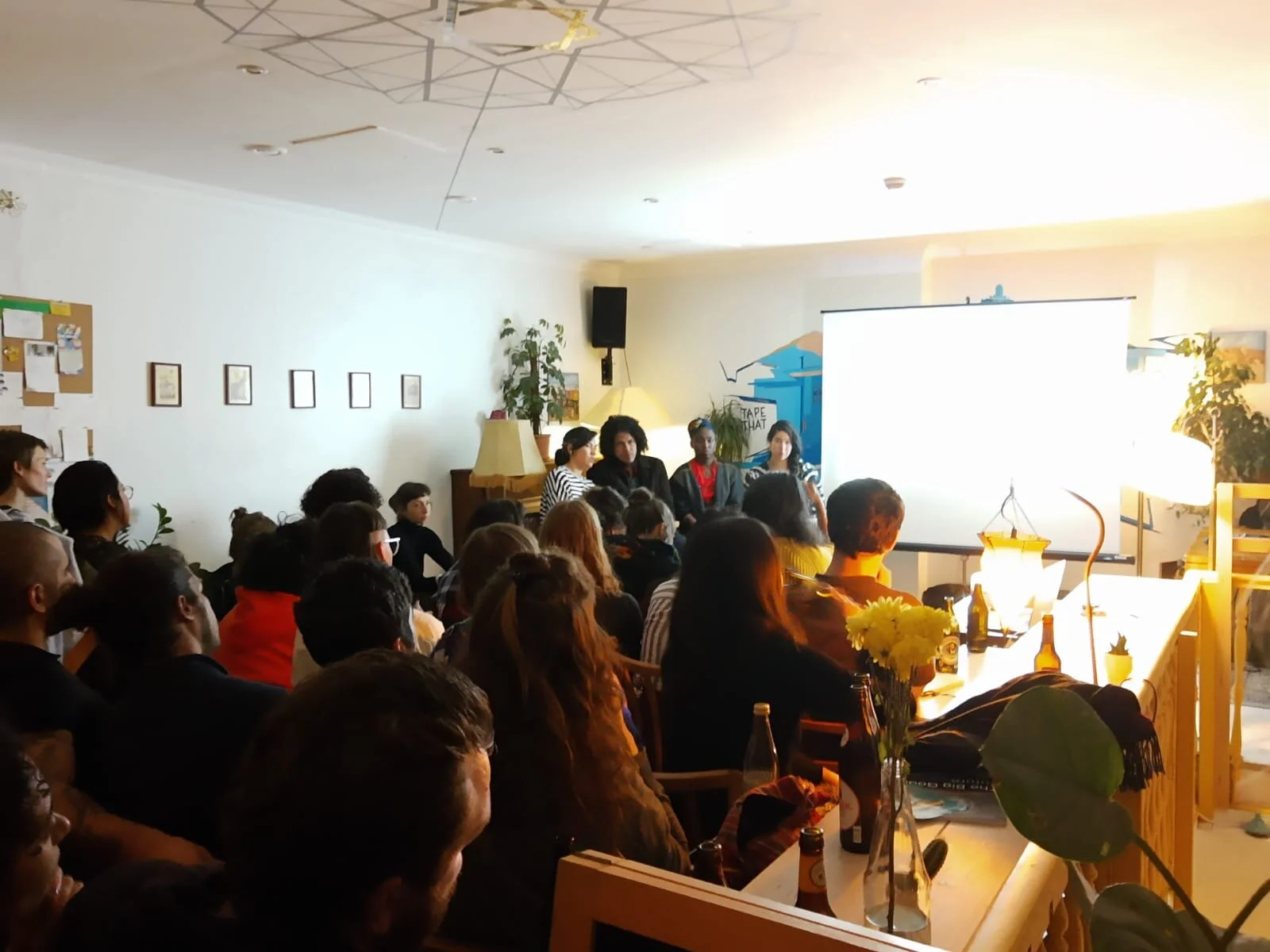"The place in which I’ll fit will not exist until I make it”.
-James Baldwin
On 8 October 2019, I co-organized an event for Berlin’s first Anti-colonial Month at be’kech anti-cafe in Wedding, a working class neighborhood in Berlin. This is part of growing concerns about the ways that the legacy of colonialism live on today and the extent that we can foster conversations with people from the Global South. One thing that I learned from curating this event is that the borders that separate do not need to be so fixed or permanent and that there are other ways for us to connect our struggles to survive and thrive. At the same time, we have the power to learn from each other, to grow together, and to win together.
Panelists for “Fighting to Survive”: Helo, Gabiel, Edna, and Melody.
The event featured filmmaker/lecturer/Black Lives Matter activist Melody Howse, Black Brazilian leftist/poet Gabriel Silva, with Portuguese-English translations by Brazilian anti-colonial month organizer Helo Yoshioka. These were activists and scholars who unpacked the ways that various nation-states monitor, regulate, and criminalize people of colour and how these modes of surveillance are tied to legacies of colonialism and slavery in Brazil and Europe. As fascist movements undergo a surge in North America, South America and Europe, Black and indigenous people have been subjected to various forms of state violence, whilst developing new political languages to survive.
While there is no single definition of freedom, the Black American activist Fannie Lou Hamer said:
“If I fall, I'll fall five feet four inches forward in the fight for freedom. I'm not backing off.”

